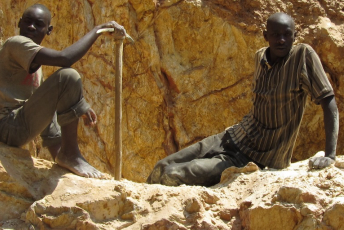Illegal mining in Senegal is seriously harming the country, not least through massive tax revenue losses and environmental degradation. It is leading to corruption both in government and the media – who should be holding the state to account. In the south-eastern Kédougou region, illegal mining has caused severe water pollution in villages such as Tinkoto, Kharakena and Khossanto.
In April, ENACT interviewed a high-ranking official in the Senegalese Department of National Parks about illegal gold miners in Niokolo-Koba National Park in Kédougou. The official said the park authorities were aware of the miners and had ‘even infiltrated them’.
In June, local media reported that gendarmerie officers had arrested around 20 people in Kédougou, including Chinese and Ghanaian illegal miners, a local mayor, park officials, the regional head of mines, and the official who had spoken to ENACT. A journalist was also arrested as he received a share of the money to cover up the scandal.
A local miner who wished to remain anonymous said Chinese-led groups of illegal miners came to Kédougou in 2017. They first settled in a buffer zone where they mined the gold illegally with the help of a Ghanaian who gave them the licence of his company, Gold Coast 7. The illegal Chinese miners paid the Ghanaian, the miner said.
A year and a half later, he said, they moved into the Niokolo-Koba National Park – a protected zone. According to local media, they paid officials bribes of between CFA 12 million and 16 million (US$20 491 and US$27 321) a week in order to mine inside the park.
Illegal mining has reportedly led to annual tax revenue losses of CFA 4 billion (US$6 830 400) for the government, while profits for the Chinese-led groups are substantial. A former interpreter for the Chinese miners told ENACT that the groups could produce 1 kg of gold a week. Given that the street value on the black market for 1 g of gold is around CFA 25 000 (US$42), they could make up to CFA 100 million (US$170 760) a month, he said.
The former interpreter said every month a park official facilitating the illegal mining would give money to local leaders, including village elders and mayors of surrounding communities. This money was allegedly meant to buy their silence and contain the resentment caused in the community by the illegal mining, for example for the resultant water pollution.
Poor governance in the mining sector has negatively affected many local communities in the region. To stop this from worsening in Senegal, the government should more effectively regulate the mining sector by firmly applying mining laws against anyone – including foreigners, local leaders and officials – who breaks the law or engages in corruption.
Mouhamadou Kane, Researcher, ENACT project, ISS







